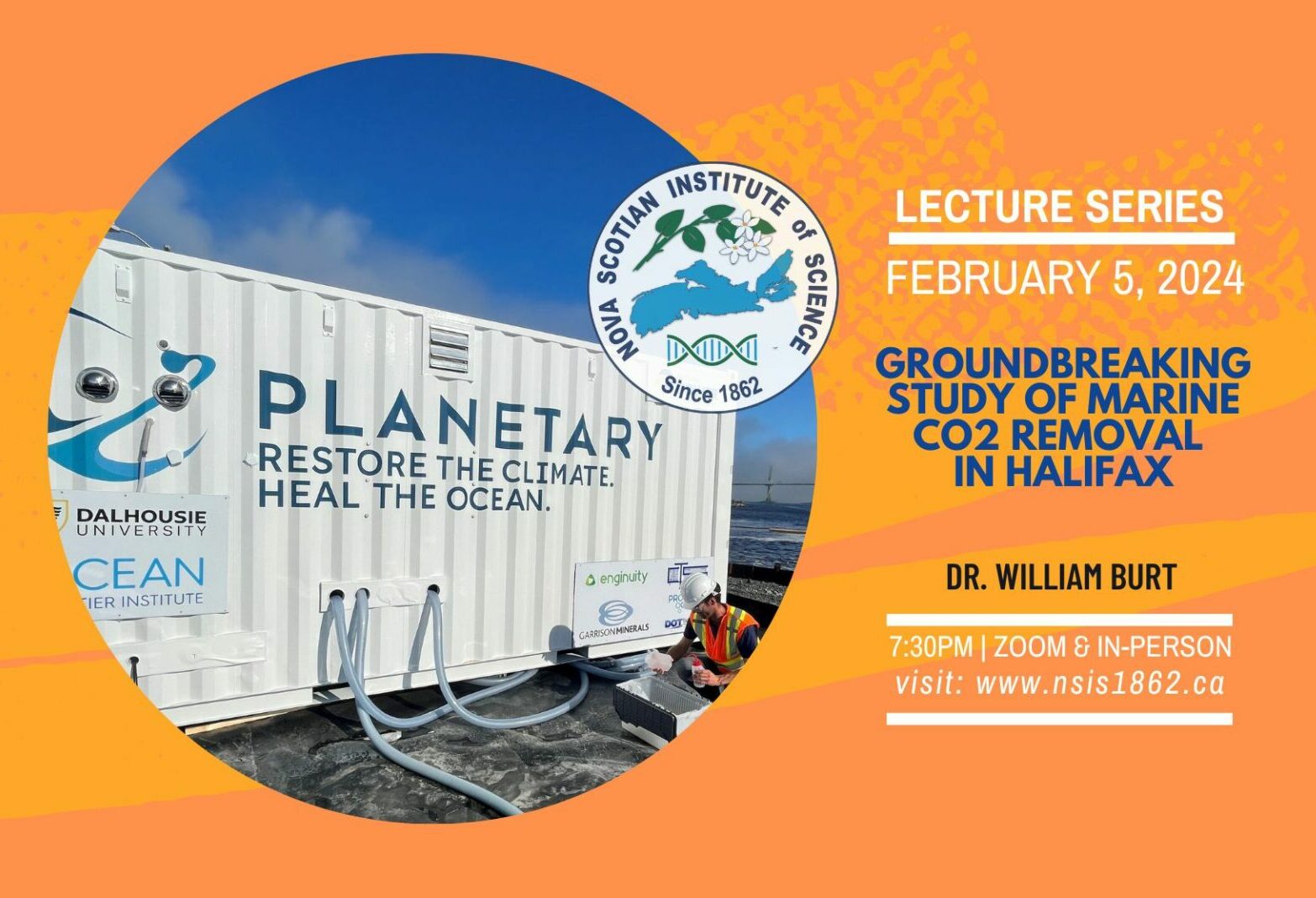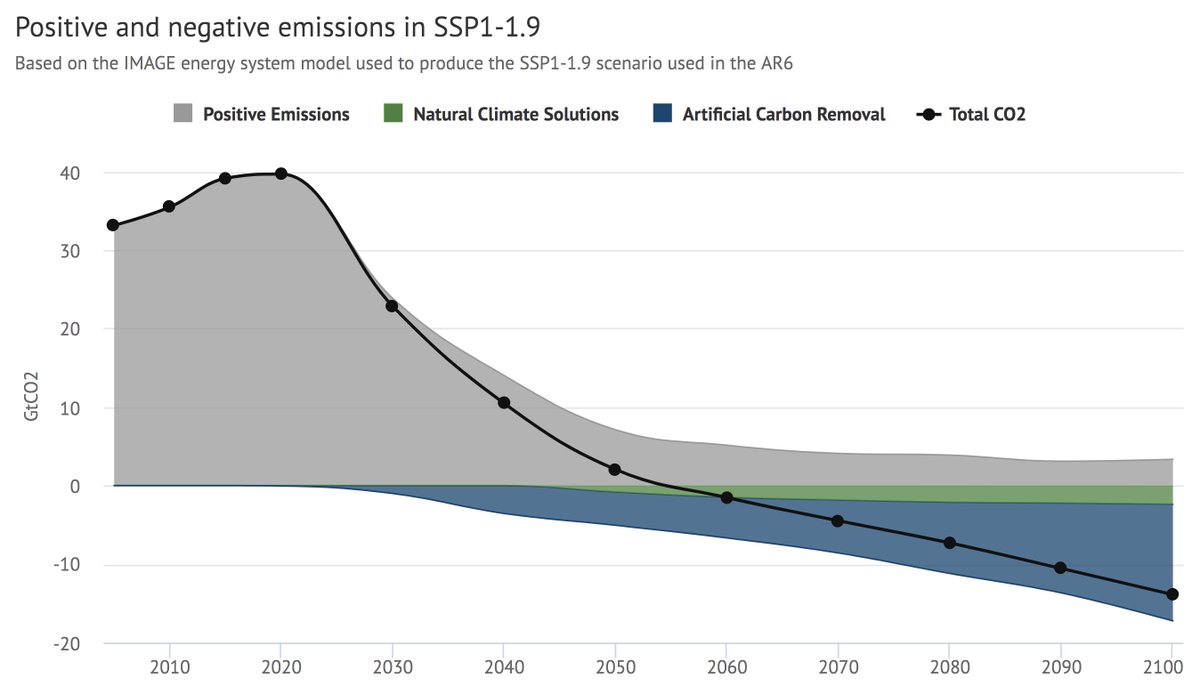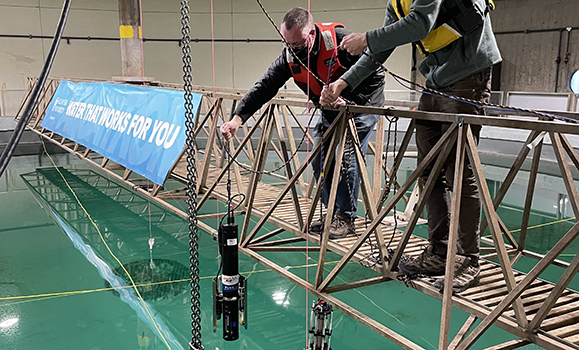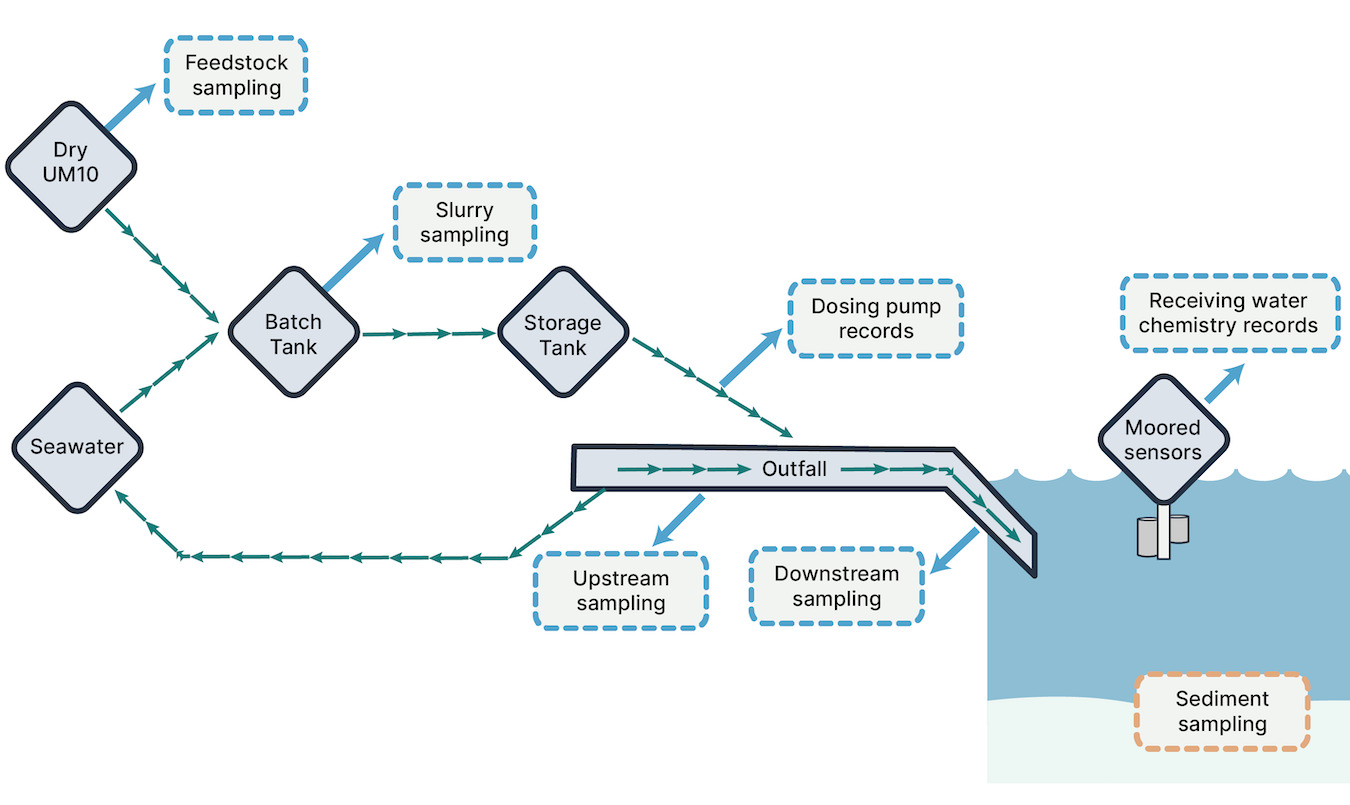
Earlier this month, Planetary’s Dr. Will Burt spoke to the Nova Scotian Institute of Science about Planetary’s Ocean Alkalinity Enhancement (OAE), focusing on our operations in Halifax leading up to and including our trial in winter 2023.
The Nova Scotian Institute of Science (NSIS) is a non-profit organisation dedicated to promoting and stimulating scientific research, and to providing scientific information to a broader audience.
Speaking at one of their monthly lectures, Dr. Burt discussed the role that OAE can play as part of a portfolio of climate tools and the careful steps that have brought Planetary’s process and many of our Halifax collaborators to the forefront of marine Carbon Dioxide Removal (mCDR) research. He also presented preliminary results from our ocean trial which, while early, are encouraging demonstrations of the technology’s safety and potential.
“I was excited to see the results of Planetary’s Ocean Alkalinity Enhancement (OAE) trial in Halifax” said Dr. Anne Dalziel, Councillor at NSIS. “Planetary’s approach to fighting climate change is a promising option for scalable carbon dioxide removal in Canada.”

While the first and largest tool in the global fight against climate change remains rapid and deep emissions reductions, gigatonne-scale carbon removal will be necessary to offset hard-to-abate emissions and to remove legacy emissions from the atmosphere. Scientists around the world are developing a diverse portfolio of solutions to meet this need, and OAE is emerging as a promising and scalable potential component of that portfolio.
Oceanographers and climate startups, including Planetary, are now trialling early OAE implementations at several sites globally, investigating removal methodologies for their safety, effectiveness, and verifiability. One such site is our project in Halifax, Nova Scotia.
Planetary’s work in Halifax began in earnest in 2021, when a NSERC Alliance grant provided the means to collaborate with experts at Dalhousie University to investigate OAE at lab scales.
Beginning with beaker experiments and progressing to pool-scale and mesocosm studies in Dalhousie’s Aquatron and in Halifax Harbour, these early experiments showed that adding alkaline materials to seawater produced an increase in pH (and therefore a reduction in acidity), as well as in dissolved alkalinity content and in the carbon content of seawater. Negative biological impacts were observed only under extreme concentrations, helping Planetary to set safety guide rails that would later inform field experiments and deployments.

Results from these early chemistry experiments, initially conducted in collaboration with Dr. Doug Wallace and his team, have since been reproduced at other institutions. They aligned with existing research, and with the existing practices of adding alkaline materials to terrestrial, watershed, and marine environments to restore ecosystems suffering from acidification.
Encouraged by these results, the next step for Planetary’s team and their collaborators was to move from the lab to the field, investigating trial sites at Cornwall in the United Kingdom and at Tufts Cove in Halifax.
Last fall, Planetary conducted a two-month trial at the Tufts Cove site, adding alkalinity through the existing outfall at the Tufts Cove Generating Station. This trial provided Planetary the opportunity to test our addition process, and independent researchers at Dalhousie University continued to study the effects of our addition on the local marine ecosystem.
Additions increased gradually over the course of the trial, reaching a maximum rate equivalent to nearly 12,000 tonnes of gross carbon dioxide removal annually.
Every step of these additions was monitored carefully. Data was used to calibrate instruments and models, to measure carbon removal and de-acidification, and to identify any unexpected changes in the marine ecosystem. Additionally, the data was sent to regulators in regular reports to demonstrate that our operations never exceeded permitted levels.
We monitored a wide range of systems and processes to ensure the trial was safe and effective.
Data sources included feedstock tests, where samples of our alkalinity was evaluated for potential biotoxicity and for purity, sampling and chemical monitoring of the receiving waters, readings taken from autonomous surface vehicles navigating inside and outside the addition plume, surveys of phytoplankton photosynthetic competence, and sediment cores analysed for accumulation of alkalinity on the seabed.

Some of these sources were monitored by Planetary, but a significant amount of ocean monitoring was managed by Dalhousie University scientists, including Dr. Dariia Atamanchuk, Dr. Katja Fennel and Dr. Hugh MacIntyre. Their research was conducted independently, and they are currently analysing the resultant data.
While several factors complicate data analysis, including the small scale of the trial and natural tidal variations within Halifax Harbour, initial results indicate that additions successfully increased the pH of the receiving waters, and that the local marine life is adapted to much larger changes in pH than our trial induced.
Although analyses are still ongoing, the data so far suggest that there was no unanticipated change to the ecosystem due to the trial.
If further data analysis continues to indicate that the trial produced successful and safe CDR, Planetary will proceed with its planned trial in Halifax in 2024. This trial will include more rigorous monitoring regimes, potentially incorporating CO2 flux chambers, additional moored platforms, environmental DNA studies, mussel monitoring, and additional feedstock toxicology studies. They will endeavour to operate with reduced carbon footprints throughout the project lifespan, particularly in the areas of alkalinity sourcing and transport, in order to produce more net removals.
These studies were made possible due to the dedicated work of our many academic, scientific, and industry collaborators, including Dalhousie University, Harris Industrial Testing Service (HITS), SGS Canada, Carbon to Sea, and Nova Scotia Power.
Planetary is very grateful for their diligence and their support, and we look forward to continuing to work with them as we push forward in developing this crucial industry.
“The early results are really encouraging,” concluded Burt. “We’ve got a long way to go, it’s not going to be easy, but this really is a story about hope.”
For additional information, please visit our Nova Scotia project pages or contact Planetary with questions. Dr. Will Burt can also be reached directly at will@planetarytech.com.
Watch the talk here
